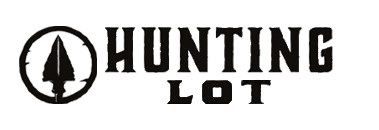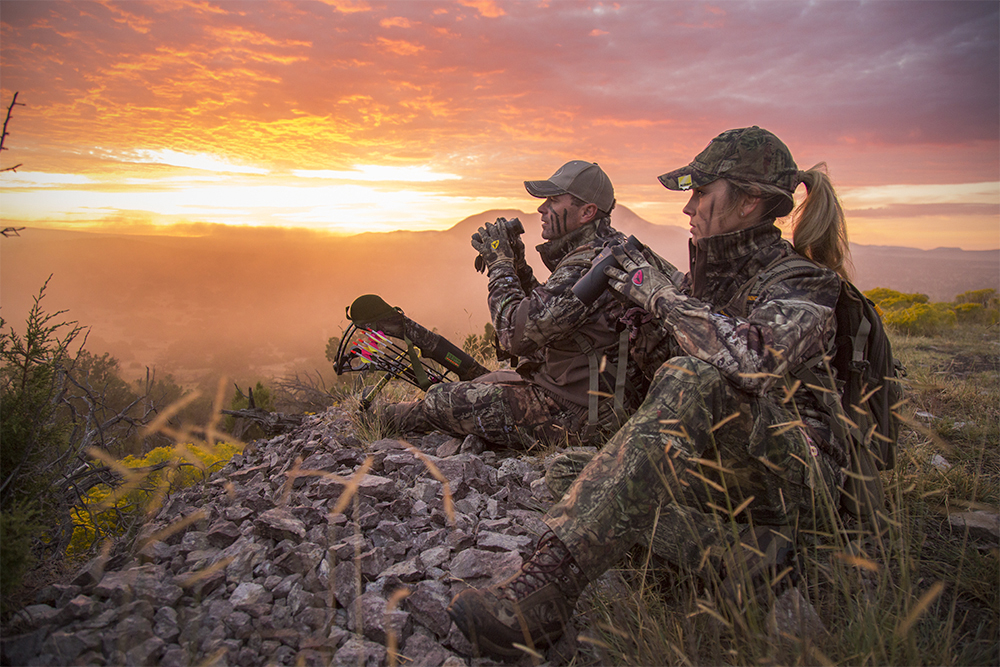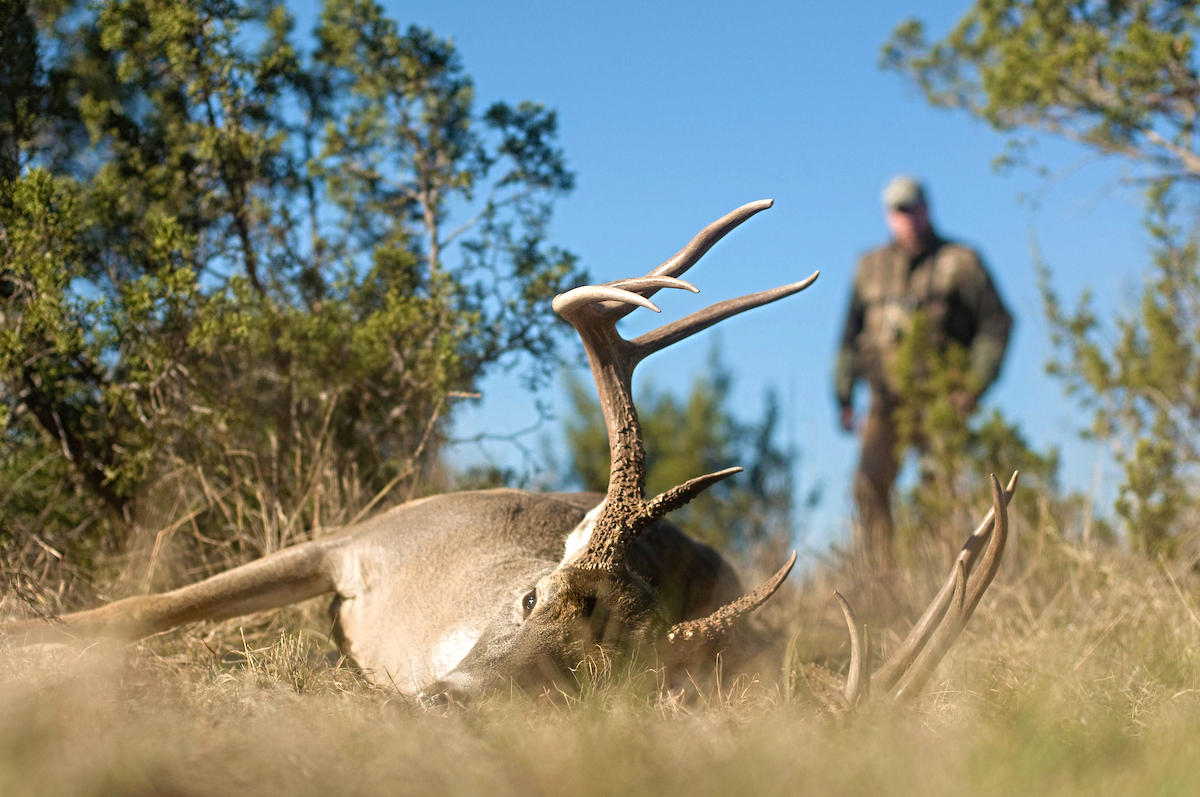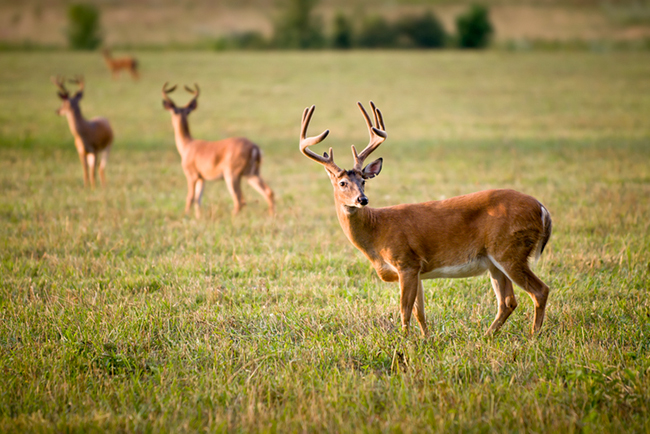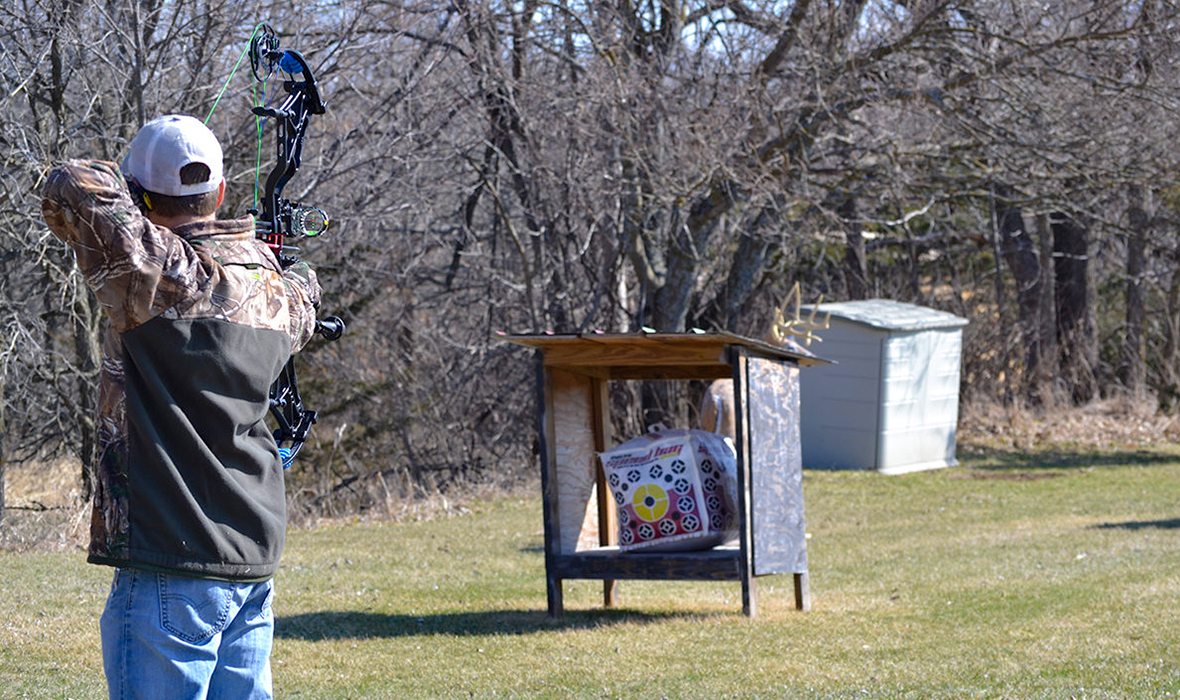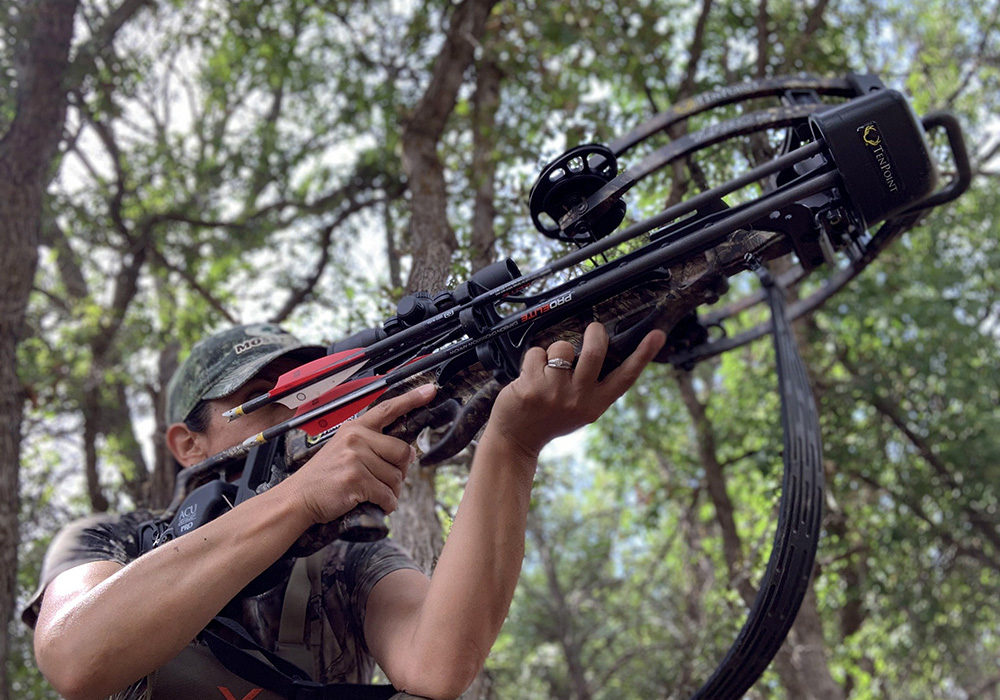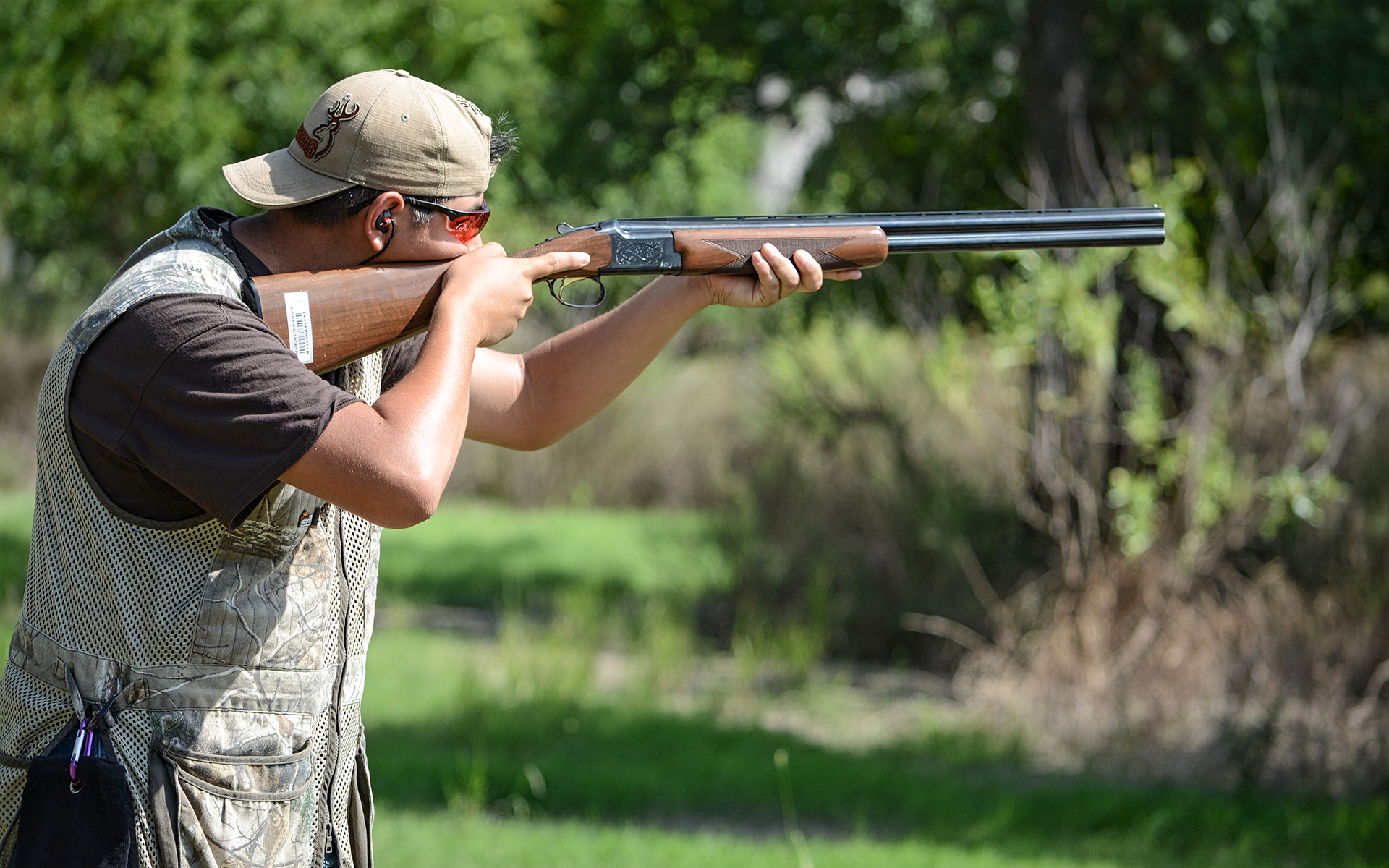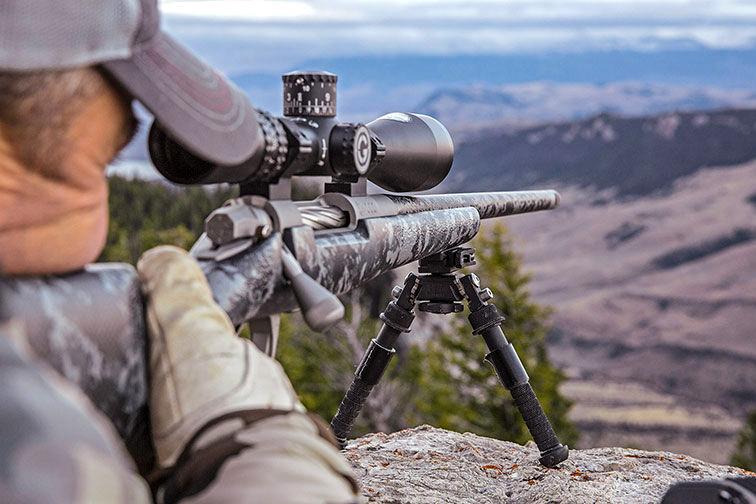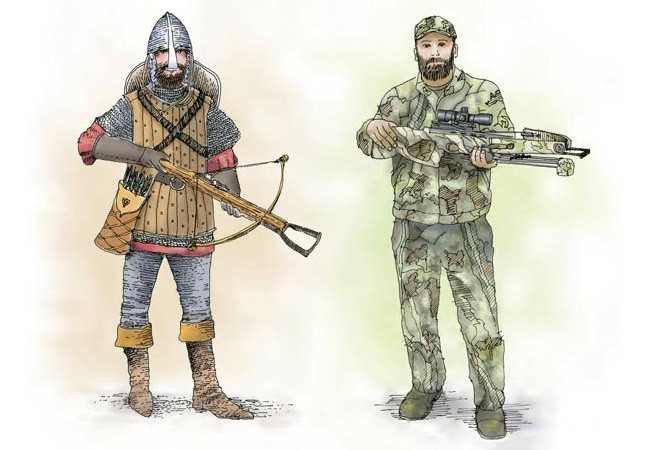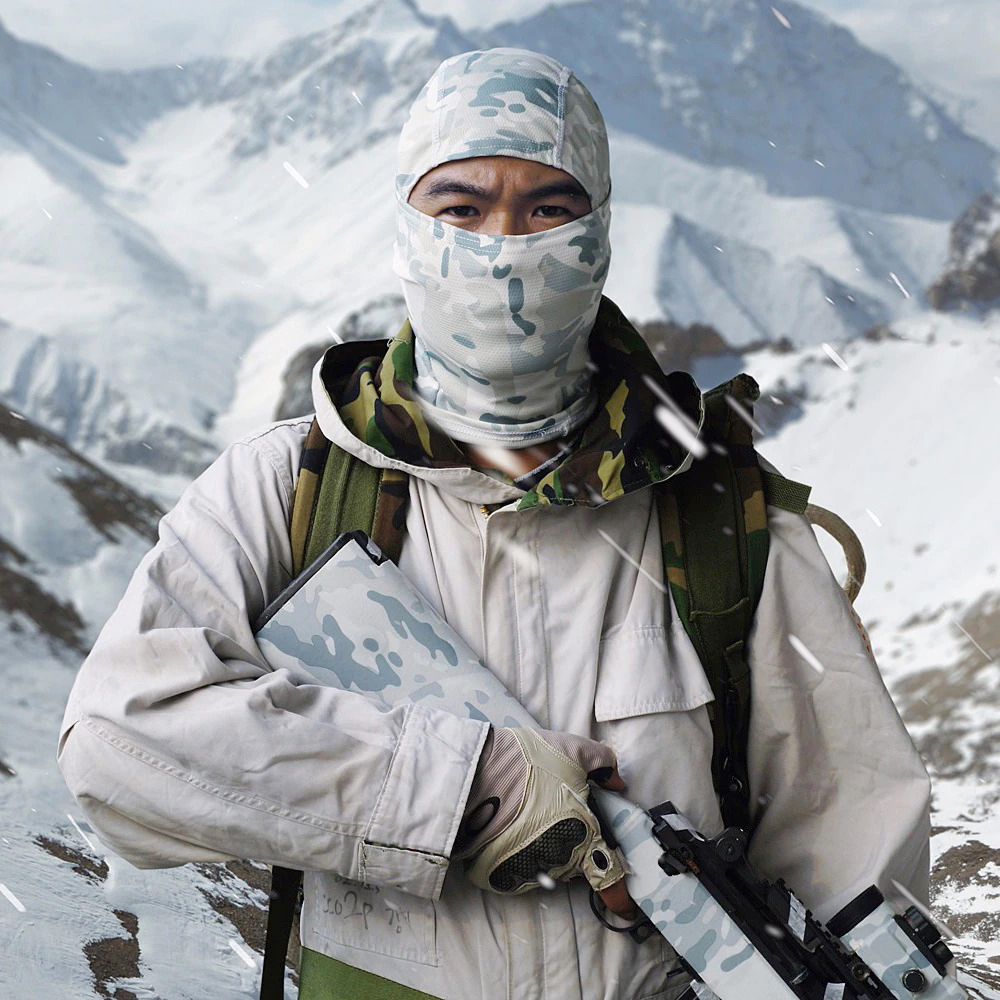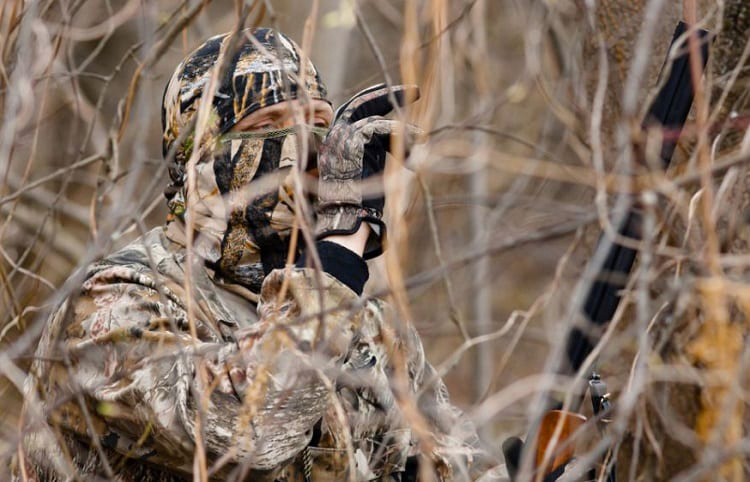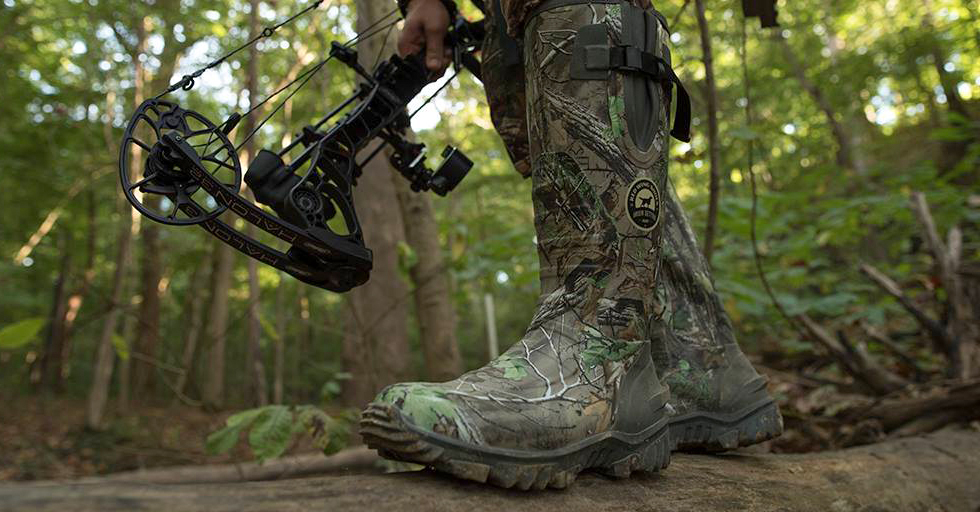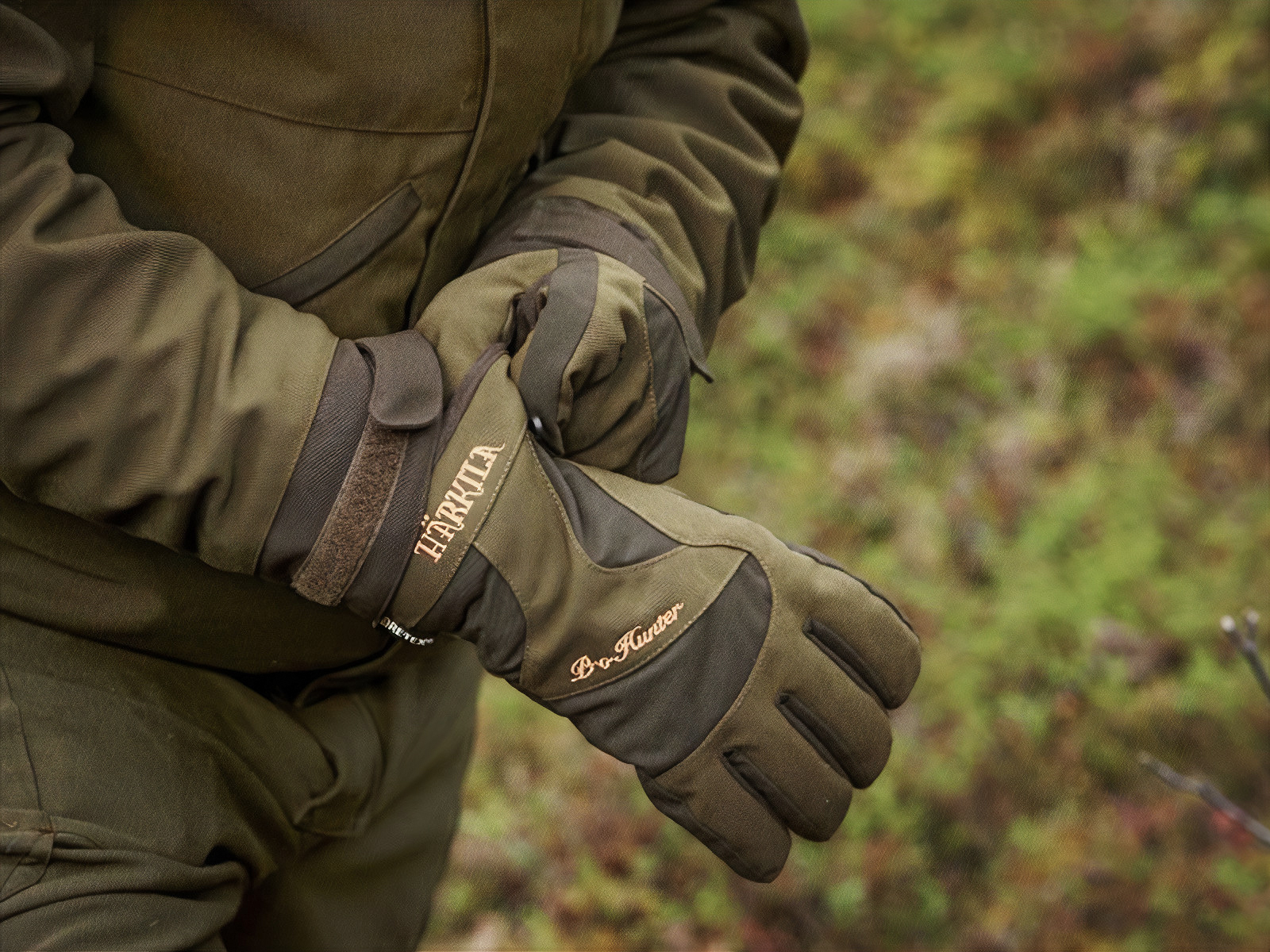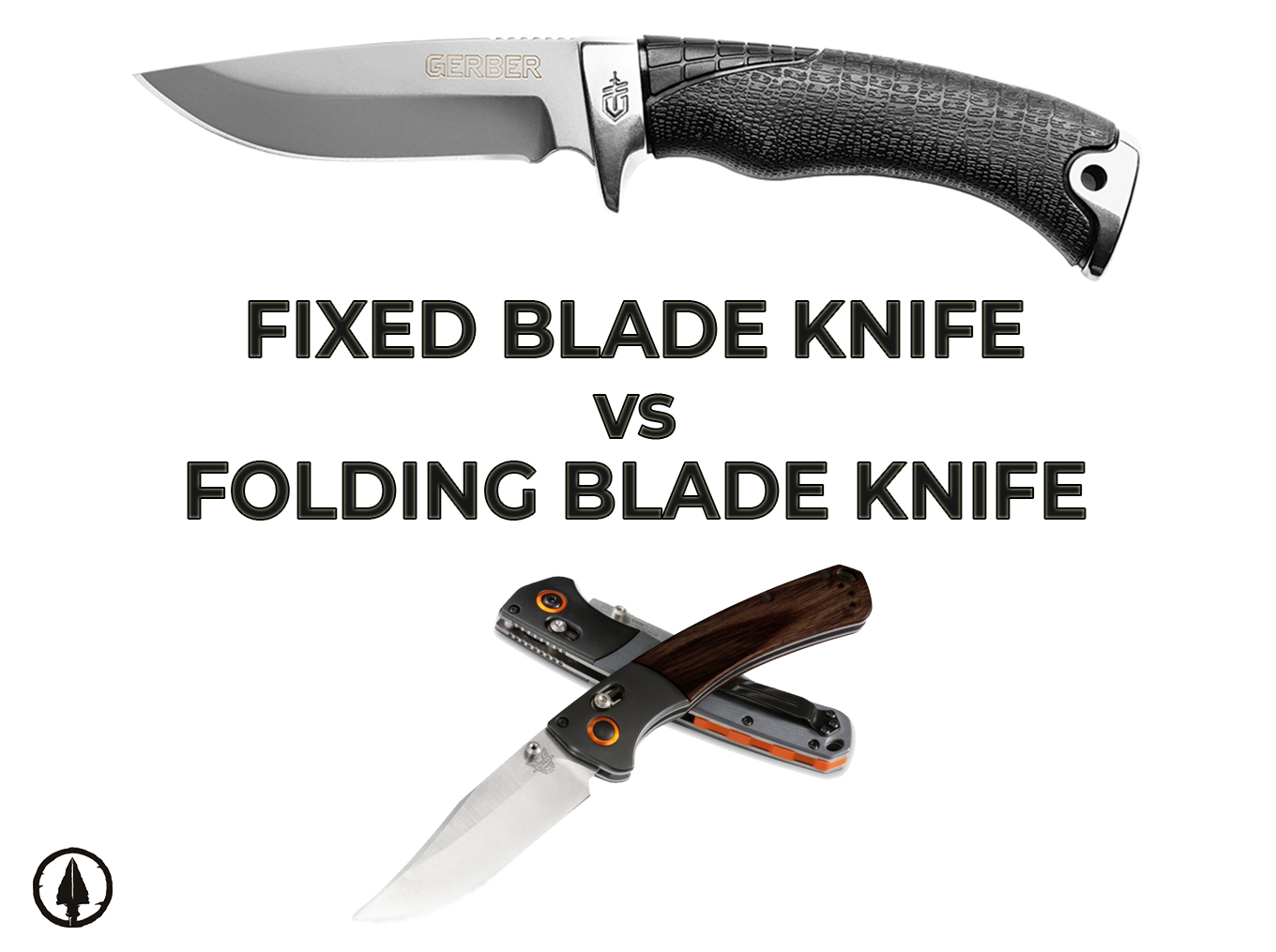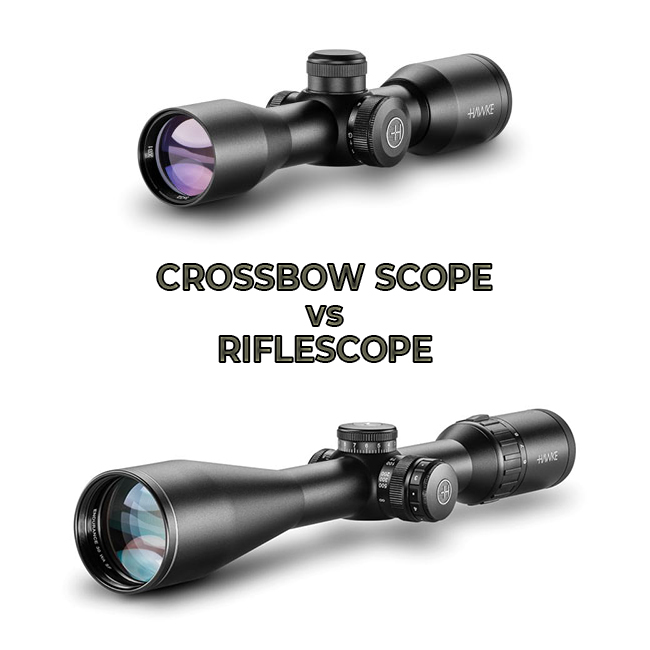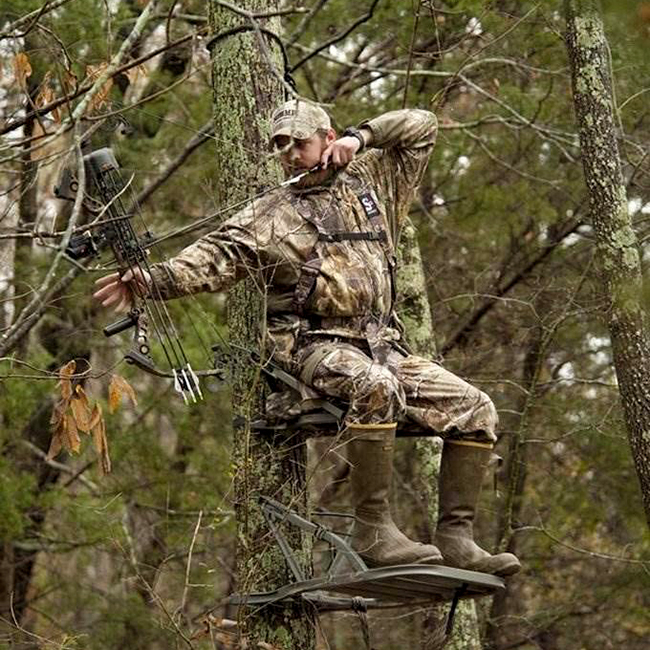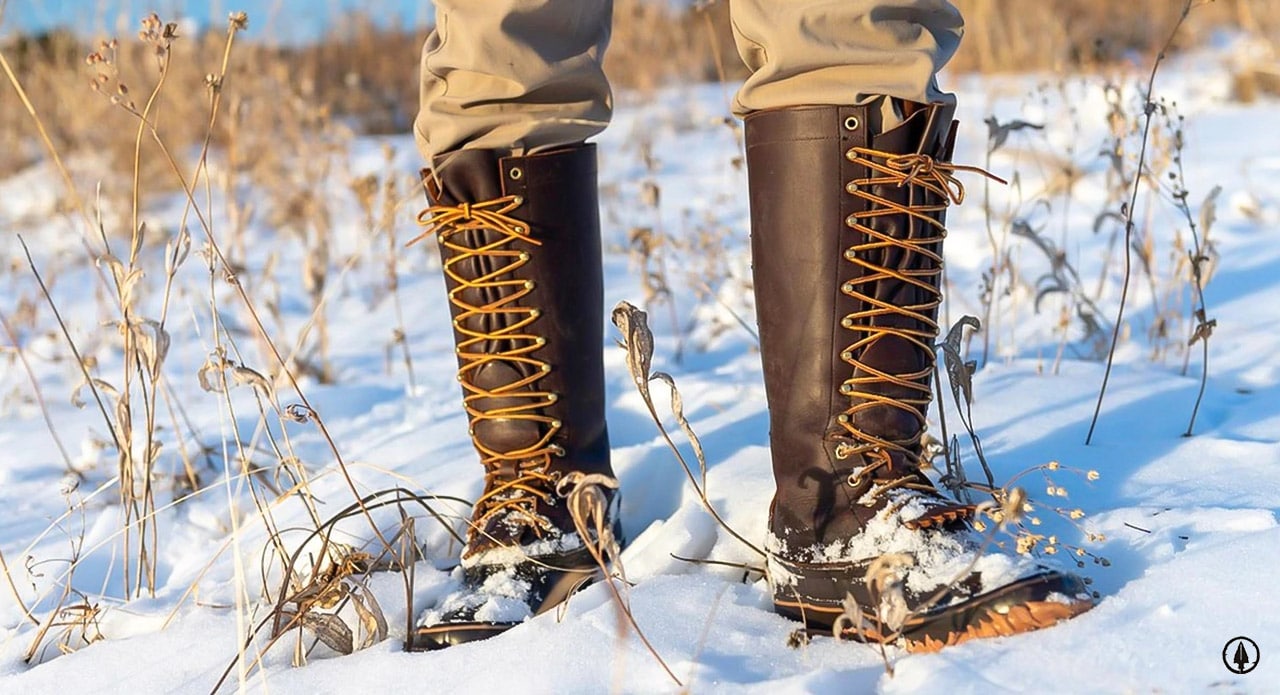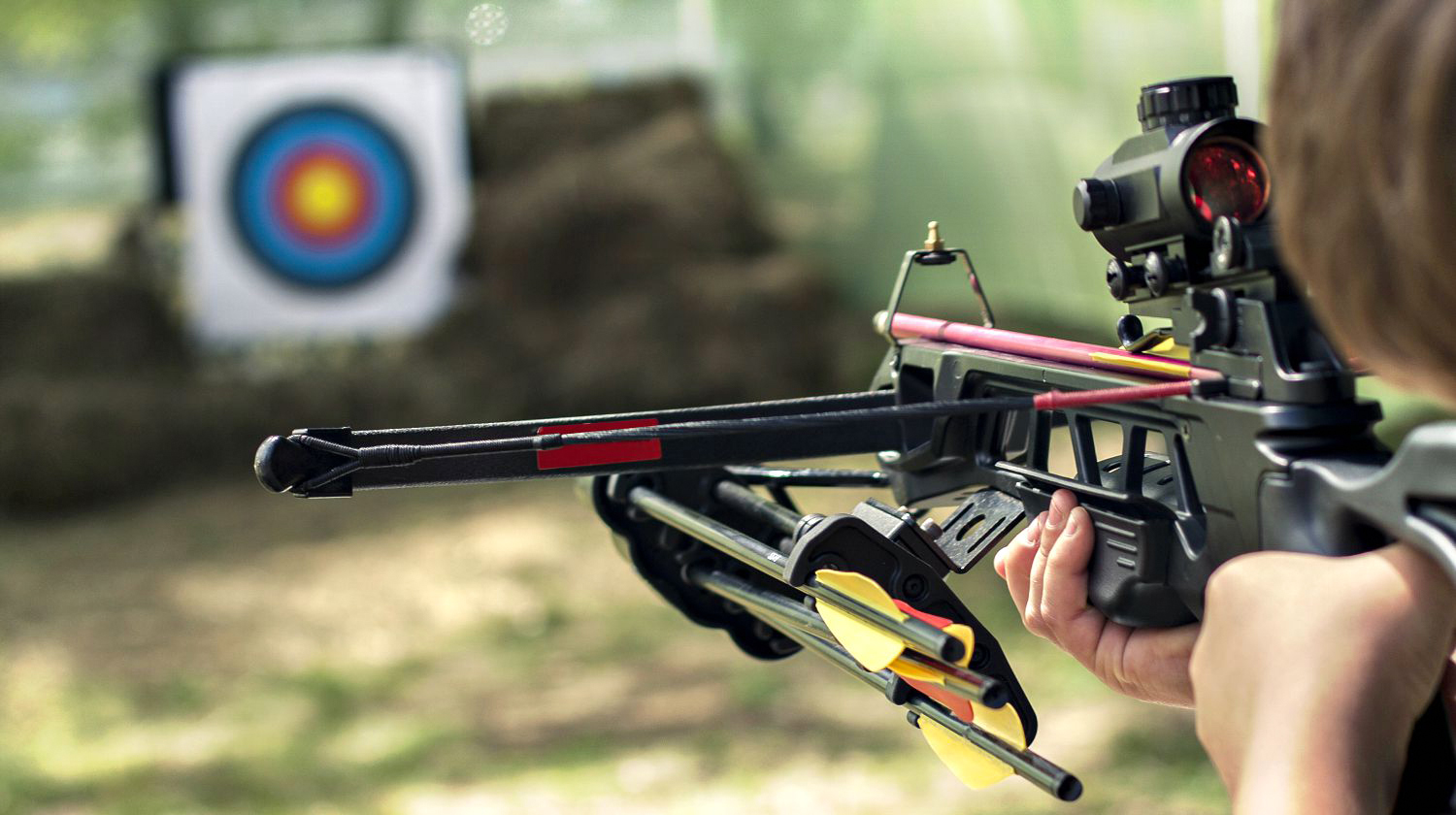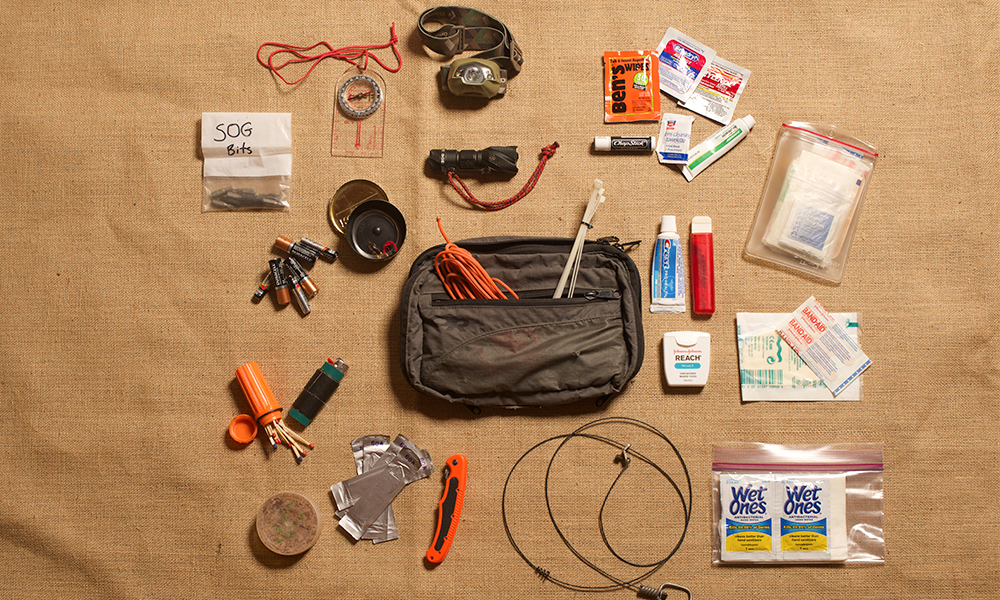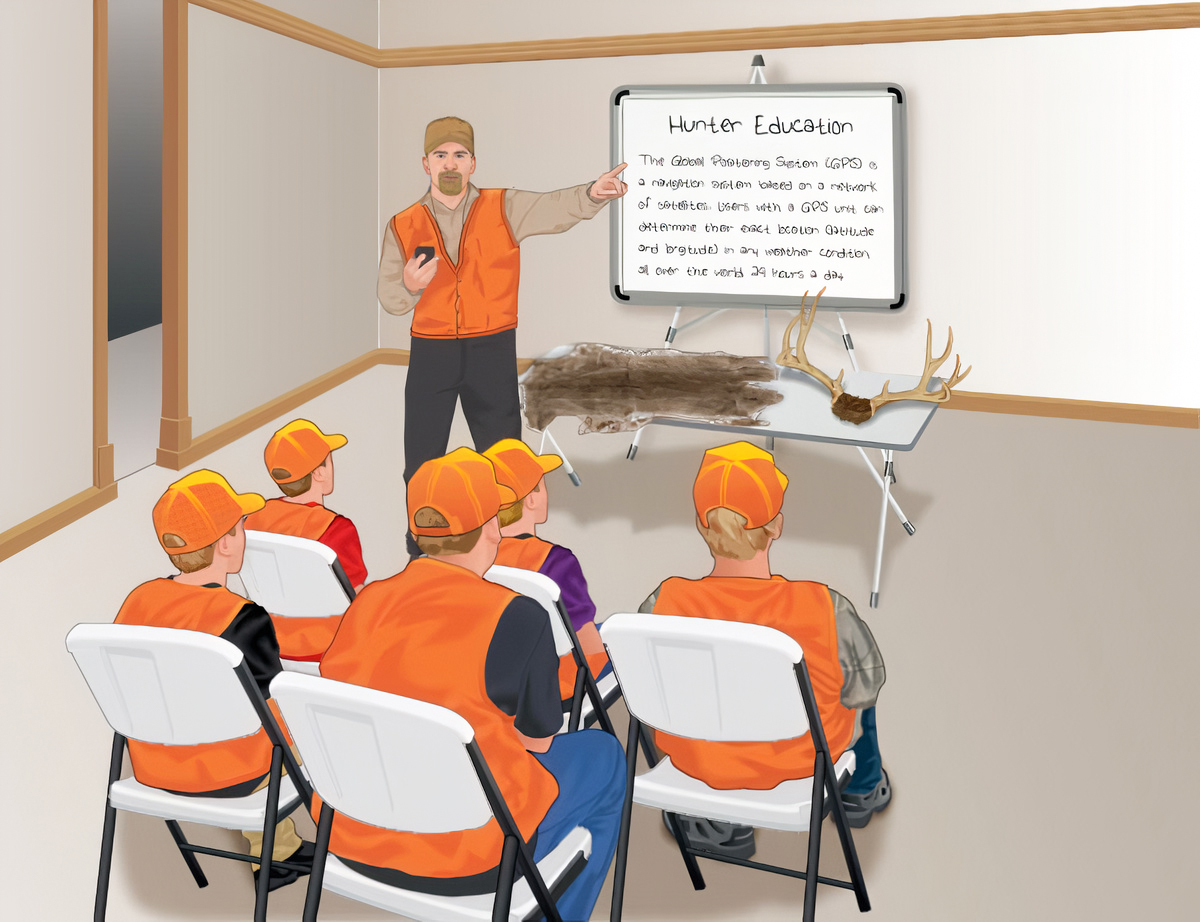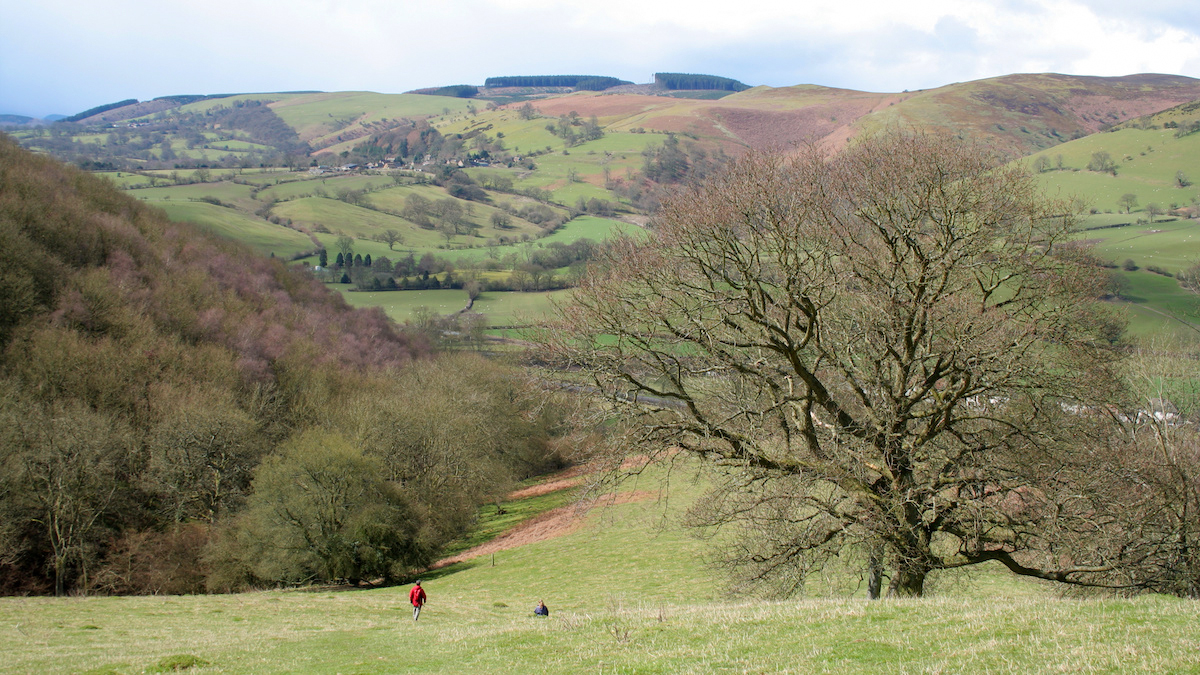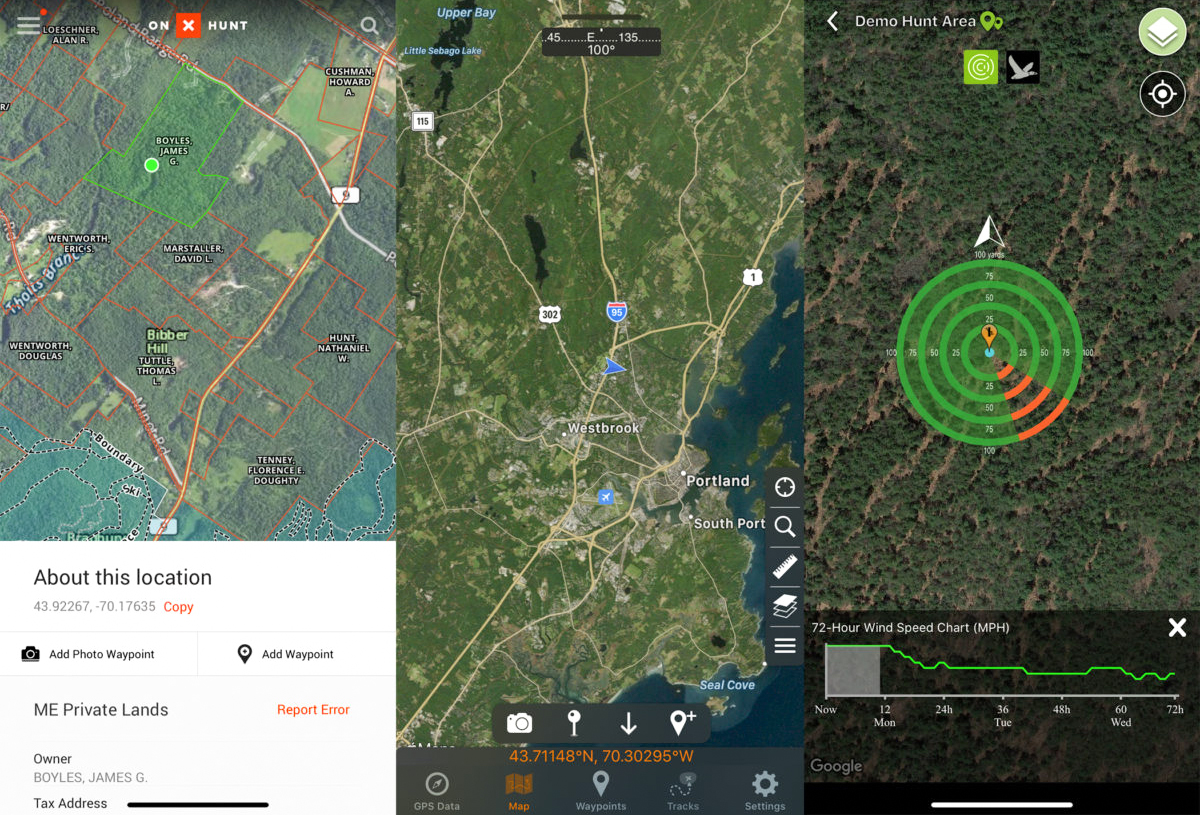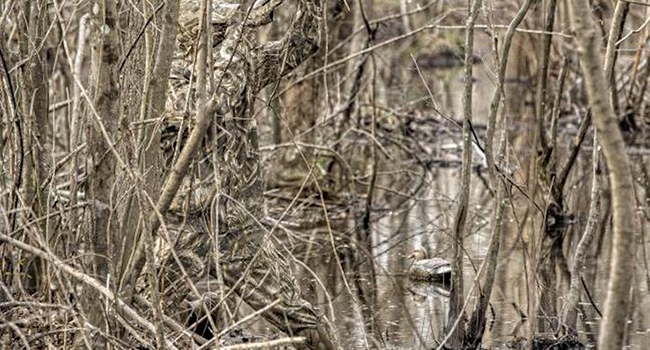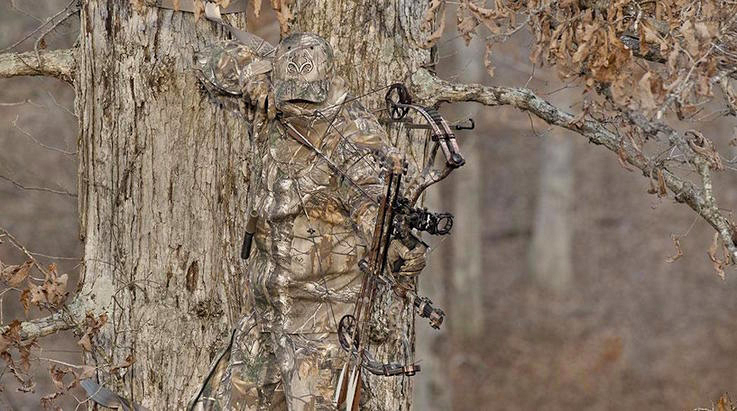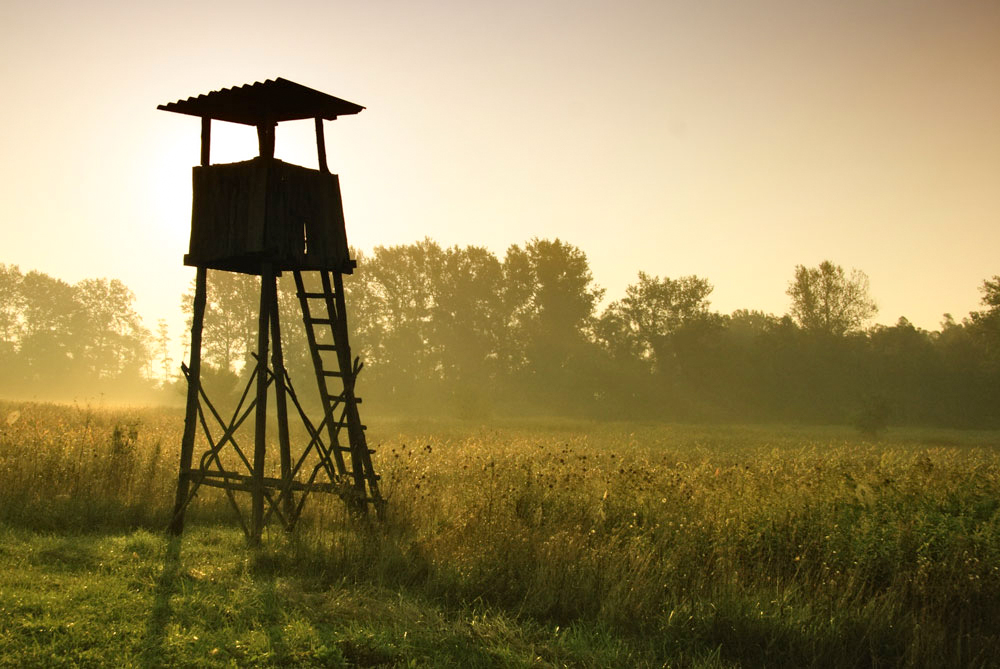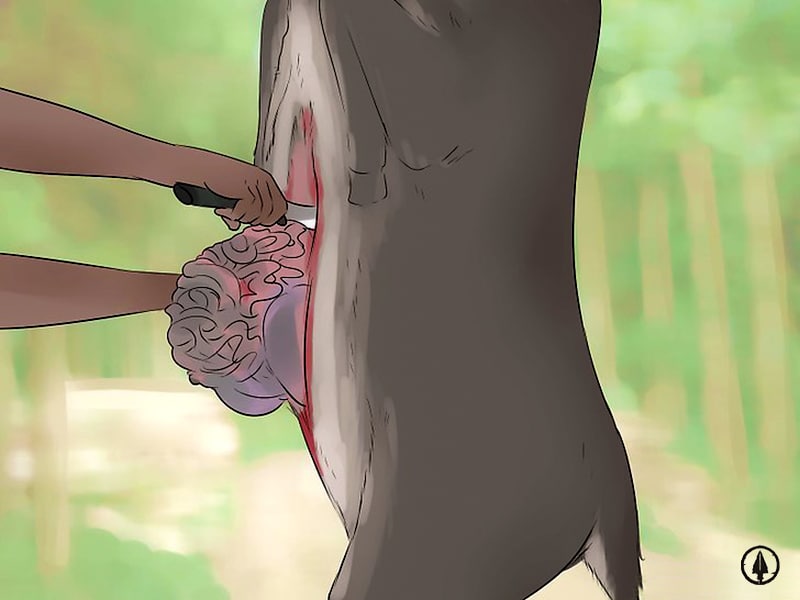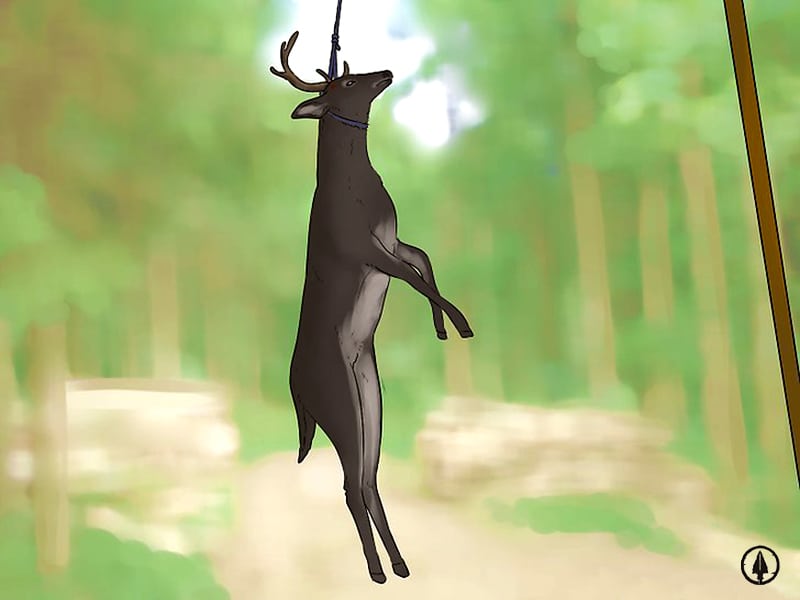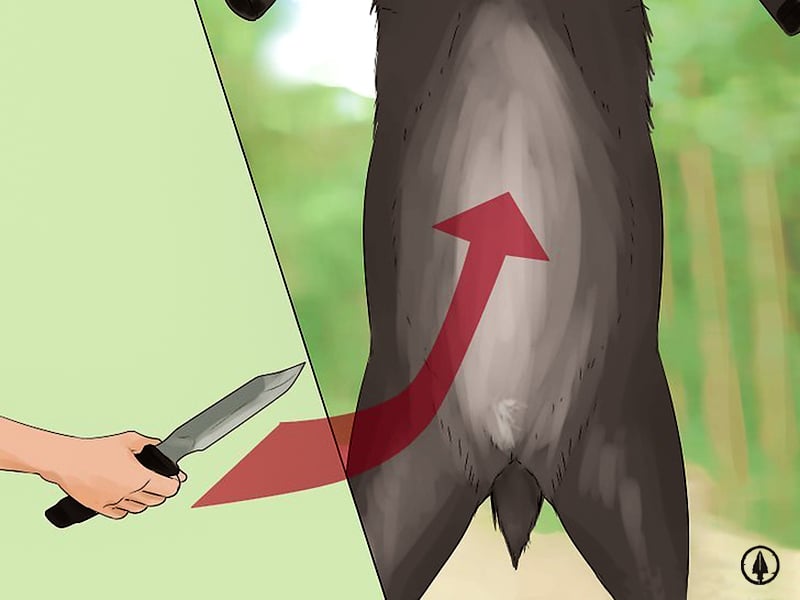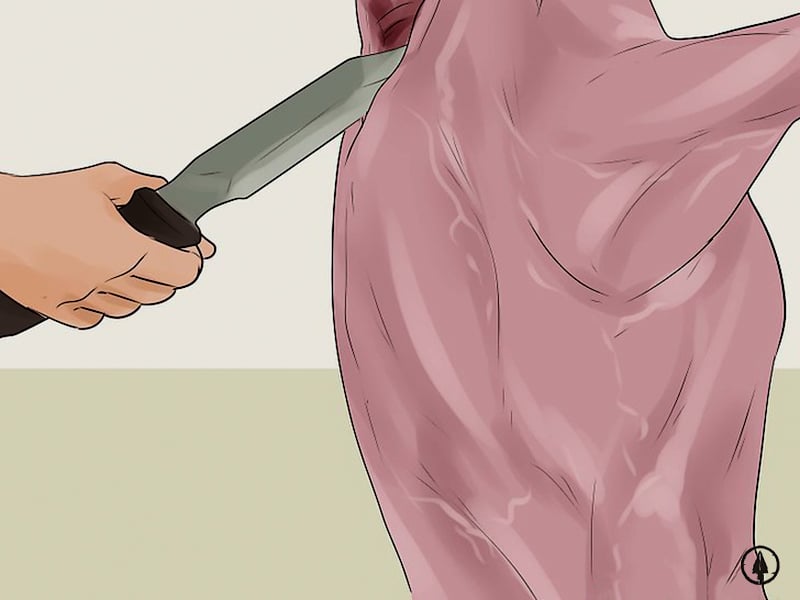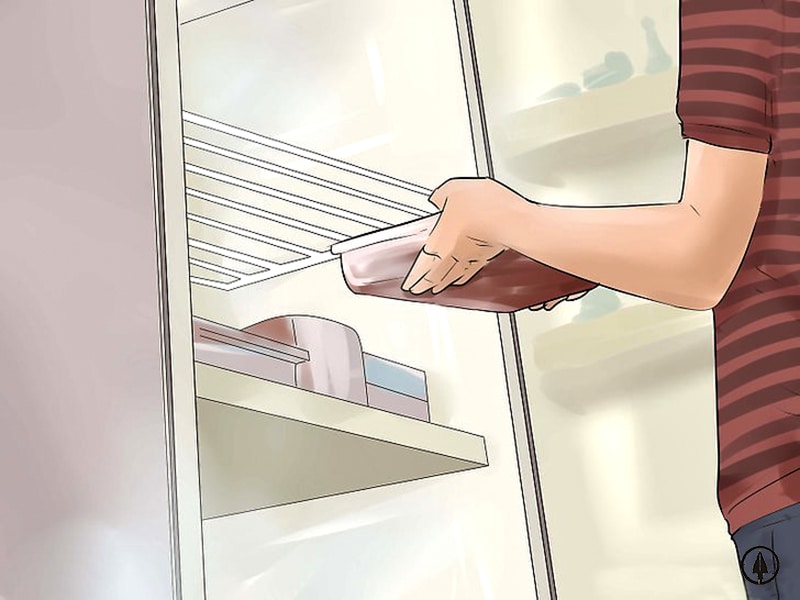Hunting is one of the oldest sports humans have played for survival, food, and even for fun. To hunt is no doubt a thrilling and rewarding game that can only be experienced at the moment.
So if you are a beginner hunter, you are in for a treat. But before you move further, read this detailed guide that has everything covered for you to begin:
Contents
- 1 How to Hunt: The Basics
- 2 The Hunting Game: Pick Your Animal
- 3 Find Your Hunting Weapon of Choice
- 4 Hunting Gear & Accessories
- 5 Hunt Preparations & Things to Consider
- 6 Where to Hunt & Terrain Preparations
- 7 Basic Hunting Tactics
- 8 Field-Dressing & Preserving the Meat
- 9 How to Hunt FAQs
- 9.1 Should I approach a dead animal that I didn’t shoot?
- 9.2 Is field-dressing necessary?
- 9.3 Is buying a hunting license mandatory?
- 9.4 Where can I get proper hunter education?
- 9.5 Should I pick a weapon with rimfire or centerfire ammunition for hunting?
- 9.6 Which is better for small game hunting: small-caliber rifle or crossbow?
- 9.7 How old do you have to be to start hunting?
How to Hunt: The Basics
Whether you decide to get started and enter the hunting world for fun, the thrill, or simply for good quality lean meat, you need to know at least the basics to begin.
If you are the first hunter in your close circle, it might be a bit difficult to start. Some states also require hunter education before anyone can begin their hunting career.
In any case, it is not something you can’t do. If you are willing to invest in the time and energy, you will get there.
However, it is important to keep in mind that hunting is a game of patience and skill. You cannot become a hunter overnight.
More importantly, you need to know the right things and have the proper equipment to become a great hunter.
Practice a Lot of Out Time
Spending a lot of out-time helps a lot, especially if you have just begun. When I say out time, I don’t just mean you go out on the field practicing with your weapon of choice.
What I also mean is that you observe your game of choice.
For instance, if you decide to become a deer hunter, spend time out on the field observing its behavior. What, when, and how it goes about the day during the deer hunting season.
Just as getting familiar with the hunting equipment is important, so is getting familiar with the game.
No one can have the perfect hunt on their first day. It’s way better if you have the patience and commitment to spend time on the field learning everything about the process that leads to a successful hunt.
A great way to start is to understand the equipment and the environment, so you know what to do in certain situations.
Hunting is Hard
Whether you decide to go for the big game or the small game, you need to understand that hunting is not a piece of cake.
It is a highly practical sport that requires a lot of skill, attention, and patience. Any good hunter that has been in the field for a long knows how hard it is.
If you take it easy, chances are you will be met with failure quite often. This can even turn out to be dangerous for you and others around you, especially if you are hunting big game.
As a result, realizing the sport’s difficulty is vital if you want to keep yourself safe and excel at the same time.
Research, practice and give it your sweat and blood before you enter the field. Otherwise, things can go wrong, and you might not be able to turn it around. Having the right mindset is vital!
Find a Hunting Mentor
If you are a beginner, you can learn a lot from someone who is a professional.
It is great if someone in your immediate circle is a hunter. You can learn to hunt with their guidance, expertise, and experience.
It can either be a family member, friend, neighbor, or coworker. They can be your mentor and your answers to the hundreds of questions you will have once you begin.
This is why finding a mentor makes it easier and quicker to become a professional.
However, this does not mean that you would have to put in less effort. It only means that the process will become more efficient.
Having a mentor take you hunting every now and then can do wonders.
From picking the right hunting weapon to learning quickly from your mistakes to choosing the right game and time to hunt, a hunting mentor can guide you through all.
So make sure you get comfortable around them quickly and ask a lot of questions.
The Hunting Game: Pick Your Animal
Picking the hunting game is another important decision every beginner hunter has to make. You will be faced with a wide variety of hunting options.
There are a few different categories to choose from, which have certain species divided amongst them. The main types include the following:
- Big game: Caribou, Elk, Bison, Bear, Deer, Boar
- Small game: Raccoon, Squirrel, Skunk, Rabbit
- Game birds: Dove, Pheasant, Grouse
- Furbearers: Fox, Beaver, Bobcat, Pine Marten
- Waterfowl: Swan, Geese, Duck
- Predators: Wolf, Mountain Lion, Coyote
You can simply choose what to hunt by looking at the list, but I wouldn’t recommend that.
Reading the name of an animal can excite you for the hunt. However, in reality, there are a lot of other factors at stake.
You need to ensure that the animal is present in an environment that you would be comfortable in. There is no point in going after a game if you cannot enjoy the terrain.
For example, if you hate mountain climbing, going after a game in the mountains would be a hassle.
Similarly, some animals are best hunted at night. But if you struggle in the dark, it might not be your thing.
Remember, hunting is a whole experience. It is not just about the animal you go after. You are going to be out there on your own with your weapon and equipment. You need to be in it 100%.
Find Your Hunting Weapon of Choice
Deciding your hunting weapon of choice is a decision best made once you have finalized your game, i.e., animal.
All hunting weapons come with their own benefits and drawbacks. Based on these, you can make an informed decision as to which will work best for the game you have chosen.
What’s more important is that you have enough practice using your weapon of choice. If you lack the practice and expertise, you won’t be able to use it to its full potential.
As a result, once you know your game and weapon, make sure to do a lot of practice sessions both on and off-field.
Get familiar with your hunting instrument and learn to interact with it as if you know it.
Picking the First Gun
Picking your first gun is a crucial step for any hunter’s career.
For instance, if you have decided to become a deer hunter, knowing your game will allow you to pick the right gun with the correct range, power, features to hunt and take out a deer.
You do not have to go all out with your first gun. It is wise to select a gun that is specifically made for beginner hunters.
Then, slowly move up to heavy-duty guns once you have had enough practice and experience with the game and weapon.
Shotguns
Shotguns have been used in hunting for a long time. Their ability to fire multiple projectiles makes them suitable for small game locations and closer distances.
As a result, if you are hunting close-range animals, a shotgun is a good choice.
If you go for a modern shotgun loaded with slugs, it can even be used for bigger games such as bear or deer.
However, shotguns are preferred for small games located at closer distances as they can fire multiple projectiles, which reduces the chance of missing the shot.
Hunting Rifles
Hunting rifles are, without a doubt, one of the most popular hunting weapons. Rifles can easily make precise long-range shots and take out big games.
But there isn’t just one type of rifle. You can go for a different type of game and hunting conditions.
For instance, if your game choice is quick and close, a brush rifle is what you need. It allows you to make good shots in thick hunting conditions under 100 yards.
In addition, the response time of this type of rifle is quite rapid, allowing you to take out fast deer, bears, and hogs.
The next in line is a long-range rifle with a heavy impact on a big game from a long distance.
This is especially for those hunters who cannot get close to the game either due to terrain limitations or other factors.
If your game is situated in the western part of North America and is among elks, sheep, pronghorns, or deers, then a long-range rifle is what you need.
Then comes the big bore rifle, which is your go-to weapon if the absolute big game is your thing.
For a hunter to successfully take out the toughest and biggest animal on the field (including cape buffalo, brown bear, or even a deer) needs a good big bore rifle on their hands.
The big bore rifle has enough range and power to get through the thick skins of big games.
Crossbows & Compound Bows
While both a crossbow and compound bow are solid hunting weapons, they both have their advantages and disadvantages.
Professional hunters know that they can make precise shots with both. However, it takes much more practice to make perfect shots with a compound bow than a crossbow.
More importantly, a crossbow requires less movement to make shots, so if your game is something that can detect movements, a compound bow can give you away.
On the other hand, a compound bow can help make quick shots and follow-up shots.
In either case, both are incredible for short-range hunting. However, they can take out big games depending on the power and features they offer.
You can choose either based on personal preference, cost-benefit analysis, type of game, and hunting environment.
Bows & Longbows
Bows and longbows are quite similar and have been in use for quite a long time. This traditional hunting weapon is one of the oldest in the industry and is easy to use and carry.
However, it does lack the speed, power, and accuracy that of a crossbow and rifle. Still, it can take out a small game that it is designed for quite well.
A good bow or longbow will be more than enough if you are entering the hunting world to hunt rabbits, squirrels, or raccoons. However, it is not suitable for the big game as it lacks many essential modern features.
Hunting Gear & Accessories
Once you have decided the game and chosen your hunting weapon, it is time to discuss your options for hunting gear and accessories.
Simply having a weapon won’t promise you a successful day on the field.
You also need proper hunting gear to do so much else that one has to on the field. Here are some vital accessories you will need:
Gear Fabrics & Materials
Like most other outdoor sports, layers are vital for protection and comfort on the hunting field. On the other hand, gear made out of cotton is not what you want.
In addition, the temperature out there can go from extremely hot to extreme cold, depending on the time and season.
If you are going to be sitting waiting for a deer on a winter day, you will need extra layers to keep you protected from the harsh winter winds.
Whereas if you are going to be running around the mountains looking for an elk, fewer layers will do fine since the chasing will keep your body temperature up.
When it comes to layering up, you start with the base layers. Preferably go for materials such as merino or synthetic wool, which have proven to be quite effective against cold.
Wool socks are a must too.
Mid-layers must not add too much bulk and should fit you comfortably under the outer layers, mostly camo pants and a jacket.
Just make sure you are not overdoing or underdoing the layers, as your comfort is key to a good day on the field.
Where You Need Camo
While camouflage is not a mandatory hunting requirement, it has lots of benefits.
Traditionally, hunters did not use actively use camo clothing. A simple pair of blue jeans combined with a wool coat and flannel shirt was the deal.
However, as hunting gear has progressed, camo has turned out to be quite effective. It greatly helps with deceiving the game by keeping you hidden.
Keep in mind that camo alone can’t do the trick. You need to have the ability to stay still for the camo to work properly.
Use it in trees and bushes alongside camo face masks for hidden peeking on the animals.
Good Hunting Boots & Gloves
Good hunting boots are a must for a comfortable day on the field. You have to consider a lot of factors such as the terrain, temperature, weather conditions, and the amount of weight you’ll be carrying.
Ensure your feet stay dry in mud and wet terrains by picking good rubber boots. On the other hand, leather boots keep your feet warm, especially if they are insulated.
Are you hunting small-game or birds? Then a pair of lightweight hunting boots is your best choice.
In all cases, a good pair of durable hunting boots will do the job right. Just make sure they have the right features for your hunting condition.
Similarly, you also need a solid pair of hunting gloves. Your hands are what you rely on the most while handling the equipment and making the shot.
If they aren’t properly protected with a good pair of hunting gloves, you could lose on potential chances.
Proper Hunting Knives
The next gear in line is the hunting knives you will need on the field. From gutting and skinning to needing an ax and saw, you need a whole set of knives in your hunting toolset.
An experienced hunter knows the importance of hunting knives and related tools. What combination you need depends on your preference and hunting condition.
However, you must consider what types of knives are needed for your style and kind of hunting. You can either go for a fixed or folding knife with a drop or clip point blade.
A throwing blade is different from the usual blade. So if you intend to do a lot of throwing, keep that in mind.
Good Scope for Your Weapon
Scopes come in all different types and sizes. Depending on your hunting weapon, make sure you go for the perfect scope.
Whether it is a crossbow scope or a rifle scope, you should know the difference between a fixed and variable scope.
Make the decision wisely based on your target animal, hunting environment, and hunting weapon. A scope can easily make or break the day on the hunting field.
Don’t even think about neglecting this accessory, especially if you are going to do long-range hunting.
Additional Big Game Gear
All the big game hunters need to expand their equipment list with additional gear specifically made for their game.
For instance, a deer hunter hunting from a tree stand must get a safety harness to protect their head.
A climbing stand comes in handy if you are going out in the public land timer to hunt whitetails.
Similarly, professional hunters use a collapsible ground blind if their preferred hunting mode is on the ground.
More importantly, since most big games are taken from afar, a pair of binoculars also does wonders on the field.
Turkey Hunting Gear
Turkeys are clever when it comes to detecting movement.
Your best bet at staying hidden from turkeys is complete camo. Get yourself a camo face mask, gloves, and vest.
Decoys are another requirement for turkey hunters, so make sure to get them. If you can’t invest in two decoys, get at least one.
If you are getting just one, get a hen deke. But, if you can get two, get a hen as well as jake.
Upland Hunting Gear
When it comes to upland hunting, you won’t really need camo. However, you will be covering a big chunk of ground, so get yourself ready to be proacted by cacti and thorns during climbs.
A solid pair of pants can do this job pretty well.
Layering is important as well but doesn’t go too hard as you will be doing a lot of labor to keep yourself warm.
The most important gear for upland hunting is the boots. Make sure they are lightweight and don’t have too much insulation.
Solid ankle support is a must for steep or dry terrain. Also, if the conditions are wet, make sure the boots are waterproof.
Additional Accessories
Apart from everything mentioned above, it really comes down to your hunting environment. In any case, keep in mind a blaze orange vest or a cap to keep your head warm.
There is a wide variety of hunting equipment available, and I have covered the essential ones.
You must do thorough research yourself to see if your specific game and hunting environment requires anything else.
Hunt Preparations & Things to Consider
Choosing your game, picking your hunting weapon, and getting all the necessary accessories does not mean you are ready to go out there.
Hunting takes a lot more than that. You have to prepare yourself and consider a lot of things before stepping out on the field. It gets real out there, so you must be fully ready.
Here are some important things to do and consider for a good day on the hunting field:
Take Classes & Practice with Your Weapon
Being a beginner, there is nothing wrong with taking classes. This especially helps you with getting familiar with your choice of weapon.
Make sure you do enough practice to the point where you feel confident using the weapon and its ability to take out the game.
You can make frequent visits to a shooting range designed for your weapon of choice and practice your aim and hunt stance.
Shooting must not be taken lightly as it is one of the most crucial skills for any hunter.
If you want success to come your way, I cannot emphasize enough the importance of practice for it to happen.
Prepare Emergency Supplies
When I say it gets real out on the field, what I mean is that nothing is in your control. You can practice all you want and be fully prepared, and still, things can go wrong.
Accidents don’t come with a warning. But if you are prepared to deal with one, things can be brought under control.
As a result, you must have the relevant emergency supplies at all times for the type of terrain and game you are after. Here is a list of supplies you must have:
- Additional routine medicines.
- Mobile phone or radio for communication.
- Alternate clothes for different hunt and weather conditions.
- Firestarters or lighters.
- Metal cutlery.
- Signaling device or a whistle.
- First aid.
- A compass and map for navigation.
- Survival knife.
- A waterproof light source.
- Quick food for emergencies such as granola.
You must do your own research as well to take along relevant supplies suitable for your hunting environment.
Purchase a Hunting License if Necessary
Purchasing a hunting license might not be necessary for all types of games and for all areas. However, you must purchase one if the state requires it.
Some states allow hunters to hunt small game without a permit. However, they still expect you to adhere to all state regulations for hunting.
Safety Precautions
Hunting is no easy sport. It can get dangerous, and accidents sometimes become inevitable.
As a result, no matter how cautious you are, always keep going back to refining your safety precautions.
Most states have already laid out the standard safety precautions for hunters. Do check out what your state requires.
However, I wouldn’t advise you to only stick to what the state has asked. Be extra careful. Study the terrain and the animal and take precautionary measures accordingly.
Take safety courses, which are also made mandatory by some states. Make sure you know all the safety regulations by heart.
Comply with them in every scenario; otherwise, you might have to face legal repercussions.
Find a Suitable Hunting Location
You should study your prey’s ideal location beforehand. All animals have their ideal habitat where they spend the most time.
More importantly, all animals do wander around spaces where it is easier to take them out as compared to other spots.
Figure out what these spots are and how the animal behaves there. Also, notice the time they spend there and when they move.
Observe the migration changes during different seasons and what leads to such changes.
The more you learn about the game and its routine life, the better equipped you can take it out successfully.
Inspect Weather Before Going Hunting
Inspecting the weather conditions before entering the field gives you a heads-up. As a result, you can take along only the supplies that might be needed.
More importantly, it is always best to be prepared when the weather gets bad. Staying one step ahead always helps to avoid dangerous situations and keep you safe.
Where to Hunt & Terrain Preparations
There are mainly two types of hunting grounds that professional hunters use – private and public land.
Most professional hunters enjoy the terrains of both private and public lands, as both come with their own benefits.
You as well can enjoy a mix of both as a beginner hunter. But, more importantly, you can try out different terrains to see which works best for you.
However, you must keep in mind that it is important to choose land and terrain that is relatively easier for you and has a good population of your target animal.
Finally, you don’t want to be hunting in a place that has an overpopulation of hunters.
Private Land vs. Public Land
An ideal situation for a beginner hunter is having access to private land. Either you have hunter friends who grant you access to private lands, or your family owns it.
However, this isn’t normally the case for most beginner hunters.
But this does not mean you can’t hunt on private land. You can still get free access to private land by doing the labor of finding private landowners.
There are several tools and applications out there to locate them, after which you can ask for permission.
Then there is the public land that is accessible to everyone. However, different states have set their limits to public lands for hunting.
For instance, Montana has a wide range of public land available for hunters to use. On the contrary, Illinois has only allowed a limited amount of public land to be used for hunting.
You can use mapping apps such as Google Earth to scout the terrain and find potential habitats for your preferred game before heading out.
Review the Map
Reviewing the map is essential before actually jumping out on the field.
While you may argue that the real world is different from what we see on the map, it is still important to have an idea of what you could face while on the hunt.
A solid amount of time invested in reviewing a map helps a lot. You can point out all the important sports where the game resides.
More importantly, you can have an idea about the terrain challenges you might face. It also helps with not getting lost on the field, especially if you are going alone.
Scout the Terrain
It is generally believed that successful hunters spend less time hunting and more time scouting.
If you wish to be a successful hunter, you would also have to love the scouting process.
You can’t even imagine the advantage you can have if you spend lots and lots of time learning about the species you are hunting and the environment it stays in.
The whole point of scouting is to figure out where the game animals hang out most of the time. More importantly, you get to figure out where it is most suitable to make the shots.
You can do all of this by spotting the animal and making sense of the signs they leave behind.
Do a lot of scouting, especially before the hunt season begins. That way, you will learn the habits of the game and the situation of the terrain.
It is a huge plus when you actually go out there to hunt!
Patience is Key
Any good hunter knows the key role patience plays on the field. You will see a lot of advertisements running around pitching the hunting experience fully packed with action.
While it is true that the real thrill is when you take the game out, a huge chunk of the time is spent quietly sitting around and observing.
You need to make up your mind for a lot of waiting. If you get easily frustrated during the waiting and observing period, chances are you will end up making all the wrong decisions.
When I say waiting period, I am referring to hours in the end. And you have to enjoy the whole process for it to turn out successful.
If you don’t have this mindset, work on it before you step outside.
Basic Hunting Tactics
I don’t think hunters can ever come to a consensus about a standard technique for successfully hunting a game.
Everyone is learning as they go forward with their careers and use their preferred hunt methods and tactics. This is the real beauty of the game, as nothing you do is wrong as long as it works for you.
However, some basic hunting tactics are the same for everyone.
Still hunting is one of them where you have to walk slowly and quietly throughout the hunting area.
You have to make frequent stops to analyze the area and observe what the game is up to. Your eyes and ears play a vital role in this type of hunt.
The other is stand hunting which is one of the most common hunting tactics used today. In this type of hunting, the hunter is usually after a big game and is stationary in one position.
So instead of slowly and quietly moving around, you wait at one location for the game to come to you.
Camouflage for Sneaky Hunt
Camouflage is one of the modern hunting tactics that hunters use actively. From camo face masks to vests and pants, you can go full camo mode to conceal yourself from the game.
However, the first thing for this tactic is for you to be as quiet and as sneaky as possible. This is because the whole point of camo is to keep the game from finding out you are there.
So, get sneaky while you have the camo accessories on!
Stalking Your Game
Stalking your game is quite a similar tactic as still hunting. However, unlike still hunting, stalking requires you to follow indicators that take you to the game.
You have to follow sounds, smells, tracks, and other things that could take you closer to the animal.
More importantly, you cannot become a stalker overnight. It is a skill that is learned by practicing. Above all, you have to learn to be patient and follow the indicators correctly.
Stalking might sound fun, but it is one of the hardest hunting tactics. However, both that feeling and the rewards are worth it.
Blinds and Elevated Stands
Hunters use ground blinds to hide from the game. They are small in size and can even be made at home.
If you don’t know how to make one, you can simply get one from a manufacturer. It does not matter where you get it but what matters is that they match the terrain to hide you properly.
On the other hand, elevated stands come in handy when you are deer hunting. They help the hunter stand at a stationary position that is high up.
In addition, the higher position allows you to have a better view of the area as well as enhanced concealing from the animal.
Baiting and Game Calling
Baiting is, as the name suggests, attracting the game by using food sources. This can be any sort of food that the game eats or is attracted to.
While baiting is an effective hunting tactic, not all states allow it. Therefore, you must check out your state’s regulations before using this tactic to hunt.
Like baiting, game calling allows you to call out the game to your location.
Game calling can be used when you are still hunting, stalking, or using ground blinds. It is effective when the game is not yet in your sight and range.
Field-Dressing & Preserving the Meat
Field dress is done on the field immediately after the game is taken out. It is a necessary process that is done to preserve the meat from the animal you have hunted.
Field dressing requires you to remove the internal organs of the animal that help ensure that body heat is not lost rapidly.
More importantly, field dress helps prevent the growth of bacteria on the surface of the carcass.
If you carry it out at the right time, you will be able to keep the meat of good quality. Moreover, it allows you to carry out big games back from the hunting field easily.
All professional hunters do it and if you are new to it, here is what you need to know:
Quickly Gut the Animal
The first step to the field dressing process is gutting. As soon as the game hits the ground, you must get there to start the process.
If you sit this one around and don’t take immediate action, chances are the meat will turn poor and won’t hold its prime quality. As a result, you must have the proper tools to assist in the process.
The basic tools include a latex glove, a sharp gutting knife, and transporting the animal properly.
Be extremely cautious around the stomach, bladder, and intestine area during evisceration as it can taint the meat no matter the game’s size.
For cleaner meat, also make sure to keep any kind of debris or dirt out. In case of any contamination, wipe it off right there.
Here are some general gutting steps you must follow while gutting a deer:
- Make the first cut at the bottom side of the breastbone.
- The next step is to open the body cavity without piercing the entrails.
- Once the cavity is opened, get the reproductive organs out without spreading any contamination.
- While holding the knife with the blade up, cut the muscle and skin from the breastbone bottom to the brisket.
- Split the ribs and cut the breastbone.
- Continue the incision from the pelvis to the anus and remove it
- Remove all the entrails by rolling the animal on its side
- Take the liver and heart out and place them in plastic bags
- Clean the insides and remove any dirt and feces.
- Wipe the insides and then dry them with paper towels or a dry cloth.
Cutting the Meat
You will find a plethora of meat cutting methods online and even if you ask around. However, nothing is more important than having the right set of tools to cut the meat.
So, make sure you have a sharp knife, meat saw, and a sharp skinning knife. More importantly, have a clean surface to do all the cutting for dirt-free meat.
If you are new to butchering animals, don’t be intimidated. Just like hunting, it gets better as you practice.
Moreover, if this is not your thing and you don’t want to go through the hassle, there is always the option to hire someone else to do it.
You can simply drop off a field-dressed game to a professional butcher. They charge a reasonable fee to do the cutting for you.
Cooling the Meat
Once the field dressing is done, you must come to cool the meat. Heat is the main culprit that brings down the incredible taste of the wild game.
As a result, you must could down the animal carcass as soon as possible. Usually, field dressing does the trick and brings the temperature down.
However, if it’s too warm during a day hunt, you can consider hanging the animal in your garage to cool down.
It is preferable if you have a cooler in the house big enough to store the animal that makes the animal available for butchering sooner.
How to Hunt FAQs
Should I approach a dead animal that I didn’t shoot?
No, you shouldn’t approach a dead animal that you didn’t shoot. Firstly, you can’t be sure if it’s actually dead. Second, it’s someone else’s successful shot that you shouldn’t do anything with, even if it is.
Is field-dressing necessary?
Yes, field dressing is mandatory to keep the meat in pristine condition and protect it from bacteria and heating.
Is buying a hunting license mandatory?
Whether you need a hunting license or not depends on your state’s hunt requirements. You can check them out on their official state website.
Where can I get proper hunter education?
You can find many courses for hunter education. One of the popular US-approved hunter education courses is offered at Hunter-Ed.
Should I pick a weapon with rimfire or centerfire ammunition for hunting?
Rimfire ammunition is a more popular one used by professional hunters. However, it all comes down to your personal preference and hunting conditions.
Which is better for small game hunting: small-caliber rifle or crossbow?
While both produce good results for hunting small game, most hunters prefer small-caliber rifles due to their added power and range.
How old do you have to be to start hunting?
There is no standard age that applies to all states. Therefore, you must check your state departments’ websites to confirm what age makes you eligible to hunt.

Hi, my name is Michael Goodman. As a skilled hunter and a man of the field, I will show you some sophisticated, intelligent, and useful hunting methods and techniques.
